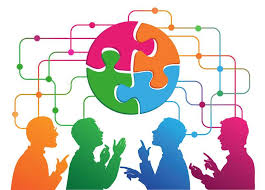Unlocking Potential: How Empowerment Transforms Leadership and Workplace Culture
Discover how empowerment fosters innovation, boosts employee engagement, and reshapes leadership. Learn from Google, Zappos, and Haier how autonomy drives success.
MANAGEMENT
LYDIE GOYENETCHE
3/7/20254 min read


Defining the Core Concept of Empowerment: The Desire for Social Performance
The word "empowerment," translated into French as "capacitation" or "autonomisation," refers to a process through which individuals or groups gain more power, control, and freedom to act on their environment. The definition of this key concept is rooted in the social movements of the 1960s and 1970s, particularly in the United States, where it emerged in the context of civil rights and women’s liberation struggles. These movements highlighted deep inequalities and aimed to give marginalized individuals a voice and a place in society.
Empowerment has also been used as a tool in urban policy to address challenges posed by social exclusion and the lack of citizen participation in underprivileged neighborhoods. By emphasizing the voices and involvement of residents, this approach sought to strengthen social ties and encourage local initiatives capable of transforming everyday life.
In social work, the notion of empowerment plays a central role. It involves supporting individuals facing difficulties in regaining confidence in themselves and their abilities. This can translate into concrete actions such as training, access to information, or assistance in creating personal or collective projects. The ultimate goal is to foster genuine emancipation, both individual and collective, and to build a more inclusive and participatory society.
Whether in social, political, or economic spheres, empowerment represents a movement toward justice and equity. However, a fundamental question arises: how can this dynamic be sustainably integrated into structures that are sometimes rigid or resistant to change?
Leadership and Management: Google, Zappos, and Haier Demonstrate the Power of Empowerment
Ah, empowerment. This term, borrowed directly from English, sounds like an invitation to unlock the potential of every individual. Far from being an abstract concept or trendy jargon, it has the power to transform teams into a harmonious orchestra, where each member plays their part with confidence (and with minimal off-notes, ideally).
In a work environment, empowerment provides tools to strengthen employees’ ability to act. By engaging each collaborator through participation and initiative, a true ecosystem of solidarity and connection is created. This extends beyond the professional sphere to touch on issues of social transformation, inequality, and mental health. By cultivating a culture of connection and authenticity, empowerment becomes a lever for personal development, self-esteem, confidence, and fulfillment.
Empowerment also relies on evaluation and reflection. How do we measure its effects? What criteria should be used to promote capacitation and enable each individual to contribute fully? These essential questions highlight social performance as a driver of social change. Through collective mobilization and increased motivation, teams can achieve unprecedented success.
Empowerment: A Breath of Collective Freedom
Empowerment... a rich concept that, at first glance, might seem like just another buzzword. But don’t be mistaken: it’s not just a fleeting managerial trend. Empowerment represents a true paradigm shift—an invitation to rethink how we interact, collaborate, and even govern. Inspired by community psychology, it encourages us to explore new ways to strengthen social justice and cultivate real participatory democracy.
But what does this mean in practical terms? Imagine a world where every individual, every employee, is no longer just an executor but an active participant in the processes that concern them. A world where everyone discovers their ability to make informed decisions and contribute to the collective. Yes, this requires stepping outside conventional frameworks and abandoning the outdated reflex of "I know better than you." Empowerment is based on the revolutionary—but deeply human—idea that we are all capable of acting and creating, provided we are given the right means.
So, sit back, grab your pens (or drumsticks), and let’s dive into the fascinating world of empowerment in leadership and management. And yes, with a touch of humor, because otherwise, we might lose your attention halfway through.
Janusz Korczak and Empowerment: What’s the Connection?
First, let’s be clear: empowerment has nothing to do with being "capable" of assembling an IKEA piece of furniture without instructions. It’s much deeper than that. It’s about giving individuals the means to act, develop autonomy, and unlock their potential. In other words, it’s the opposite of telling them: "Do as I say, not as I do."
Janusz Korczak, a brilliant Polish educator of the 20th century, understood this well. In his orphanages, he saw children as capable individuals, worthy of participating in decision-making. Instead of watching over them like a cat eyeing an unattended yogurt, he entrusted them with responsibilities. The result? A genuine democracy where children played an active role. Now, imagine applying this principle in a modern company.
Leadership: Google and Zappos Pave the Way for Facilitative Leadership
Being a leader today is no longer about frantically waving a baton to direct every movement. It’s about trusting team members to find their rhythm. Google and Zappos offer a few insights on how to transition from a traditional "boss" role to that of a facilitator.
Google encourages employees to dedicate 20% of their time to personal projects, revealing hidden talents. Zappos promotes autonomy by allowing teams to make key decisions, enhancing engagement and satisfaction. Accepting mistakes as part of the process is also crucial. Google embraces innovation, even when not all projects succeed (hello, Google Glass).
Management: Haier and the Art of Structured Autonomy
Management is like raising hyperactive kittens—you want to give them freedom to climb, but not so much that they knock over the crystal vase. Haier, the Chinese appliance giant, has reinvented management by allowing each team to function as a mini-business with clear objectives and autonomy to find their own solutions. Providing resources, co-creating solutions, and fostering accountability empower employees to develop and thrive.
The Benefits of Empowerment for Businesses
Empowerment isn’t just a gift to employees—it’s a powerful lever for organizations. It improves workplace dynamics, fosters adaptability, stimulates innovation, and enhances overall performance. Engaged employees collaborate better, respond swiftly to challenges, and bring creative solutions that drive competitiveness.
Empowerment: A Humanistic Vision of Leadership
At its core, empowerment is a profound lesson in humanity. It invites us to believe in people’s abilities and to nurture a culture of trust and humility. It is not a magic solution but an ongoing practice that depends on active listening, transparency, and shared responsibility. As we explore how empowerment interacts with different leadership styles and organizational structures, the challenge remains: how do we create a sustainable environment where autonomy and collaboration coexist harmoniously?
Ultimately, empowerment is not just about improving workplace efficiency. It’s about building a society where every individual has the opportunity to thrive, contribute, and redefine what it means to lead and work together. The real question is: how can we balance economic imperatives, human needs, and organizational dynamics to build truly inclusive and sustainable leadership for the future?


EUSKAL CONSEIL
0033782505766
euskalconseil@gmail.com
This website uses only Plausible Analytics, a privacy-friendly web analytics tool.
No cookies are used, and no personal data is collected from visitors.
The system is fully compliant with the General Data Protection Regulation (GDPR), the ePrivacy Directive, and CNIL recommendations.
You can read more about Plausible’s data policy here: https://plausible.io/data-policy